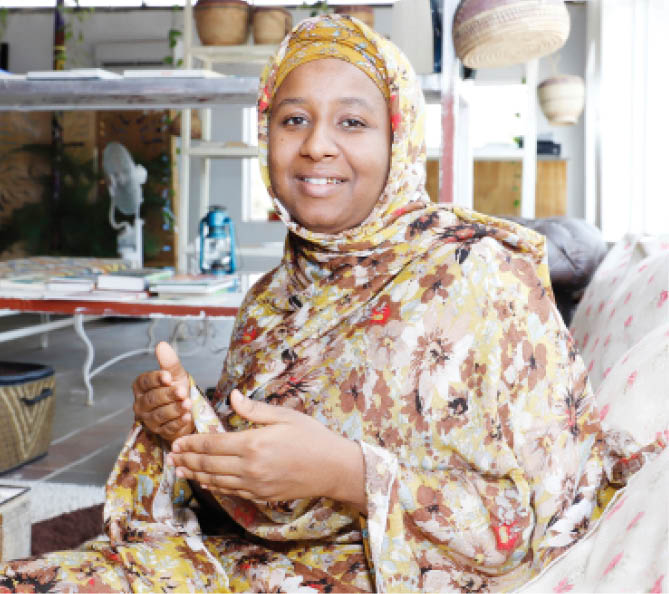Intisar Bashir Kurfi works to promote Sustainable Development Goals (SDGs) 6 which is providing clean water & sanitation and this gave birth to a company, Sustainovation Solutions. The company now produces interlocking tiles and eco-friendly toilets using wastes from pep bottles and used sachet water plastics.
Can you tell us briefly about your background?
I studied Architecture from Ahmadu Bello University (ABU), Zaria. I am an entrepreneur and a housewife with three children.
After Architecture at ABU, I also went for Advanced Diploma in Interior Designs in Albedo Designs School, Abuja. I have a company – Ifrique Collections and Designs Ltd. We do interior designs as part of the business, under which we have the CSR programmes that we do.
There is this Sustainable Development Goal (SDG) programme where we invited youths and women to tell them more about the SDGs 6 which is providing clean water & sanitation, and SDG 7 providing affordable and clean energy. We told them about the future jobs the world is looking into like Artificial Intelligence and Entrepreneurship. How people can stay on their own even without waiting for government jobs.
Then as our CSR, we went to a Fulani Community near Gwarinpa in Abuja, where we discovered they did not have drinking water and toilets; they practiced open defecation. We decided to provide that for them. That gave birth to Sustainovation Solutions, a company we registered after that outreach.
What solutions have you come up with?
The Sustainovation Solution is aimed at solving the environmental issues we are having. Thank God the government is looking into the problem of open defecation with a view to ending it.
In this company, we want to be making eco-friendly public toilets, in Abuja for now, and then subsequently other parts of the country. Here, we will use pep bottles like the one from the bottled water and plastic drinks to build toilets. We use the pep bottles to build the toilets instead of blocks. You gather the pep bottles, you fill them with sand and you lay them, just like you lay your blocks and build toilets or any structure.
We will use eco-friendly materials to build the toilets. For instance, 15,000 bottles can make a two bedroom flat. We use these discarded bottles, put sand in them and use them to build. They are bullet-proof, and they are insulating. When the weather is hot the building is cold and when the weather is cold, the buildings are warm. This is something that is a waste; we use it as a resource. Nigeria has the highest number of people practising open defecation with about 40,000 million, and we know this product can help us stop it.
We are also making inter-locking tiles from waste. For instance, 500 pure water sachet that can be thrown in the dustbin can be used to make one interlocking tiles. We can use any nylon paper to do this. We are done with this on our pilot space and we are about to go to the market.
Do you have the machine/equipment to produce these things?
We have the infrastructure to produce the interlocking tiles. Now, we produce for private individuals, but it’s not on a large scale. We hope to get jobs with UNICEF to build schools for them and toilets. Because most of the schools have poorly built toilets but with this innovation we have come up with, we can build long lasting toilets.
What are the challenges you face in this business?
One of our basic challenges is finance; we need the machine to produce the interlocking tiles with sachet water nylon in large quantities. This requires such machines that can make much interlocking tiles within a short period. That will be efficient and will not cause any environmental harm to anyone in the society.
Do you think you can make money from this?
Yes, we can generate huge revenue from this when we sell these interlocking tiles. For instance, every day in Abuja, houses are being built, and people need the interlocking tiles in most cases for these houses. From now till the next 100 years, there will be demand for it, so I believe there is great potential in the business. Also, research has shown that these plastics don’t degrade into the soil, and so, they should have long lasting effect.
How many jobs do you think you can create when you are fully operational?
We can create many jobs. You can use this product to build roads, so when this is done, it will create many jobs. For instance, in the next two years, we should be able to create 500 jobs directly and indirectly when we are fully operational.

 Join Daily Trust WhatsApp Community For Quick Access To News and Happenings Around You.
Join Daily Trust WhatsApp Community For Quick Access To News and Happenings Around You.


